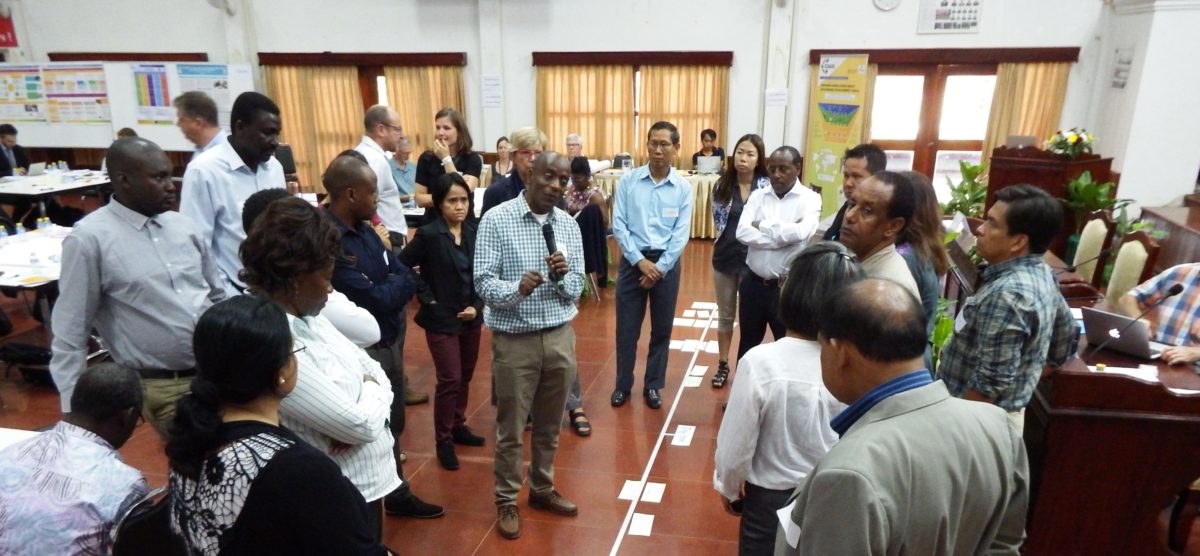
Participants from eight countries in Africa, Asia and Central America, along with many global partners, made their way home from Laos on 23 September after an intense week of sharing their experiences and moving forward.
In 2015, they were given the challenging task of putting into practice a new concept, developed some years earlier… Improving rural livelihoods through agricultural innovation had seemed easy. Technologies have been introduced, new seed varieties, micro-finance, and much more. But progress is still limited. Why? Farmers and those who work with them still lack the ‘functional skills’ needed for change to happen, otherwise known as ‘soft skills’ like the ability to link with others, negotiate, and engage in political processes.
This conclusion was made at a 2011 meeting of ministers of agriculture from the G20 countries, who then decided to establish the Tropical Agriculture Platform (TAP) to address this. TAP partners put their heads together, shared their experiences on enhancing innovation in agriculture and their varied approaches to improving ‘soft skills’, and came up with a common, agreed methodology which they called ‘the common framework’. But would it work? There was only one way to find out, and CDAIS was born. Funded by the European Commission, the Capacity Development for Agricultural Innovations Systems (CDAIS) project was to test this approach in eight pilot countries, managed by Agrinatura, a consortium of European universities and research institutes, and the Food and Agriculture Organization of the United Nations (FAO), with national partners in each country.
Now in 2017, from 17-22 September, more than 60 people involved in this initiative came together in three closely interlinked back-to-back meetings to assess the progress including some of those who actually do the work ‘on the ground’, and government and donors representatives.
“This is only a pilot project, but I see the momentum that has already been created, and that the process is being handled with reflection. You can only grasp so much from reports, whereas we now hear directly about the cross-cutting experiences between the different countries.” Pierre Fabre, European Commission/ DG DEVCO
The first ‘pre’ meeting was of the Agrinatura Taskforce, to unravel logistical issues surrounding the management of this very complex project with so many different components. The 3rd CDAIS Global Consultation on the next two days was held at the National Agricultural and Forestry Research Institute (NAFRI), lead partners for activities in Laos, to evaluate developments over the past year. This was followed by the Partner Meeting of the Tropical Agriculture Platform (TAP) to discuss progress made on applying the common framework and new action plan for 2018-2021. CDAIS project team members played an active role, presenting country case studies, and there was much lively debate. After this, the 5th TAP General Assembly agreed on the next steps for finalizing their new action plan and selected a new Steering Committee with Judith Francis from CTA/EFARD as Chair. The week ended with visits to two of the ‘innovation niche partnerships’ the CDAIS project is working with in Laos, with lots of opportunities for interaction between participants and members of farmer groups producing organic vegetables and beef cattle.
“CDAIS is aligned with our (Laos) national agricultural development strategy, and will help us overcome some of the main constraints. It will help smallholder farmers in Laos become more organised, empower them, and help to develop our priority value chains through training in making new linkages and supporting dialogue among stakeholders.”
Dr Bounthong Bouahom, Director General of NAFRI, Laos
